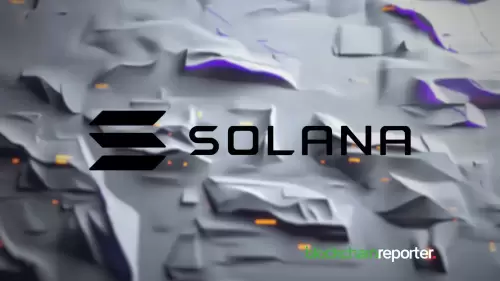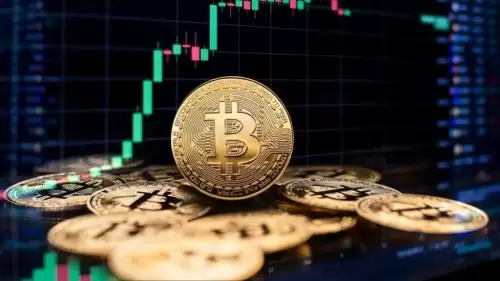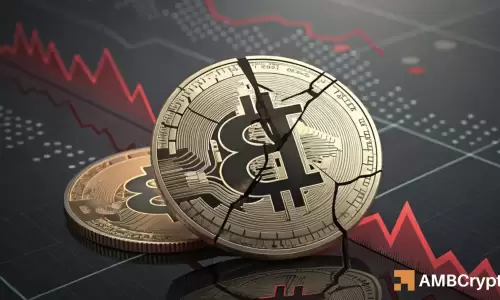 |
|
 |
|
 |
|
 |
|
 |
|
 |
|
 |
|
 |
|
 |
|
 |
|
 |
|
 |
|
 |
|
 |
|
 |
|
암호화폐 뉴스 기사
Changpeng Zhao (CZ) Proposes to Reduce Binance Smart Chain (BSC) Gas Fees by 3x or 10x
2025/05/07 17:42

Changpeng Zhao (CZ), the founder of Binance, has proposed a change that could see a reduction in gas fees on the Binance Smart Chain (BSC).
The Binance Smart Chain is a blockchain that is used to create and deploy decentralized applications (dApps).
One of the costs of using the Binance Smart Chain is a gas fee, which is paid in BNB, the powering token for the Binance ecosystem, and the native crypto of Binance Smart Chain.
Gas fees are essentially transaction fees required to process transactions on the BSC network. They are paid by users to compensate miners for their computational resources and time in verifying and including transactions in a block.
The amount of gas fee depends on the transaction's complexity, size, and the network congestion at the time of the transaction.
At the moment, gas fees on the Binance Smart Chain are 1 Gwei, according to data on BscScan, the blockchain explorer that tracks transactions on the BNB Smart Chain.
Meanwhile, data on Bitbond shows gas fees of 1.3 Gwei or $0.017 for a 15-second fast transaction speed.
Normal speeds of up to one minute translate to 1.1 Gwei or $0.014 in gas fees, while slow transactions of up to three minutes require a gas fee of 1.0 Gwei or $0.013.
However, there have been times when BSC gas fees jumped, adding up quickly for arbitrage traders.
Now, former CEO of Binance, Changpeng Zhao wants the rate revised, sharing the proposal in a post on X (Twitter).
“Let’s reduce BSC gas fees? by 3x, 10x?,” CZ posed.
“Gas fees are used to pay validators and builders. Without them, we have no chain. No one wants to use a spammed-up chain. 0 gas = no validators/builders = dead chain.”
Binance users reacted to the proposal, with some noting that they barely pay any gas fees on the Binance Smart Chain.
“Hey CZ, much appreciated, but as I use BSC chain most of the time, I have rarely felt that I’m paying any fee, like it’s too minor sometimes free,” one user remarked.
While CZ considers cutting BSC gas fees, he remains cognizant of the challenges of low gas fees. Against this backdrop, he refuted suggestions for zero gas fees.
CZ cites the role of validators and builders, who maintain network integrity and security by processing transactions, preventing double-spending, and ensuring trustless operations.
“Lots of spam, and also need to consider validators and builders,” CZ challenged.
The absence of gas fees would overwhelm the network due to a lack of cost deterrence, a common issue in blockchain systems.
To some, however, the adjustment would be a game-changer, benefiting decentralized finance (DeFi) and gaming, among other sectors. Others advocate for continued BNB burns for ecosystem growth.
“BNB burning from fees is good for BNB growth. No need to reduce,” another user wrote.
Meanwhile, it is worth mentioning that lower BSC gas fees could draw significant volume and activity. Recently, Tron founder Justin Sun advocated for lowering the costs, hoping to attract more traffic to the Tron blockchain.
“IMO, lowering fees and raising the energy cap won’8989;t hurt TRON’s profitability. The fee cut should drive transactions to 20 M+ daily in three months, expanding market share and boosting profits. More energy will also encourage TRX staking for free transfers,” Sun stated.
He also spearheaded energy cap adjustments and reduced SunPump gas fees by 50%, lowering transaction costs to encourage greater user adoption.
Amidst these efforts, TRON’s revenue surged to record highs, placing it first among all blockchains at the time.
부인 성명:info@kdj.com
제공된 정보는 거래 조언이 아닙니다. kdj.com은 이 기사에 제공된 정보를 기반으로 이루어진 투자에 대해 어떠한 책임도 지지 않습니다. 암호화폐는 변동성이 매우 높으므로 철저한 조사 후 신중하게 투자하는 것이 좋습니다!
본 웹사이트에 사용된 내용이 귀하의 저작권을 침해한다고 판단되는 경우, 즉시 당사(info@kdj.com)로 연락주시면 즉시 삭제하도록 하겠습니다.






























































